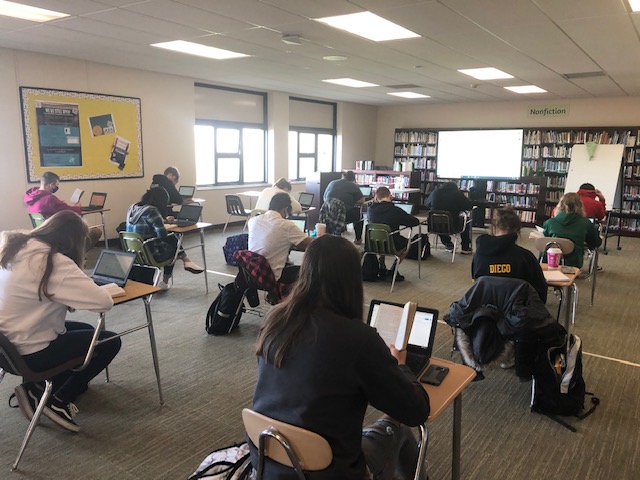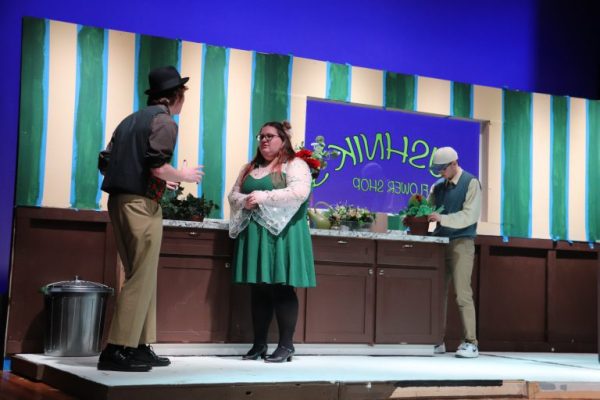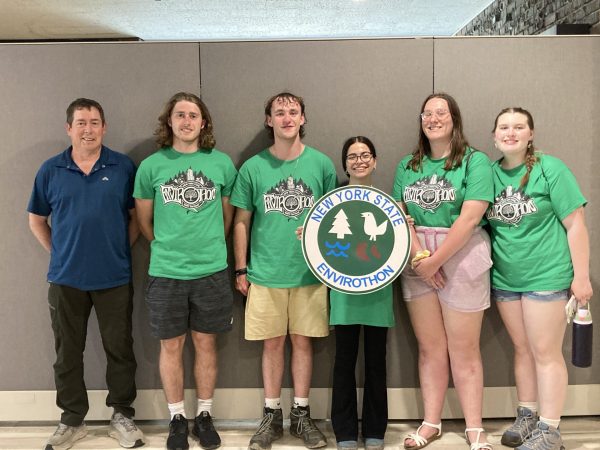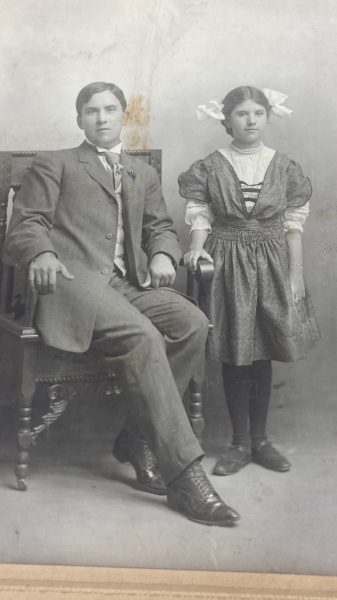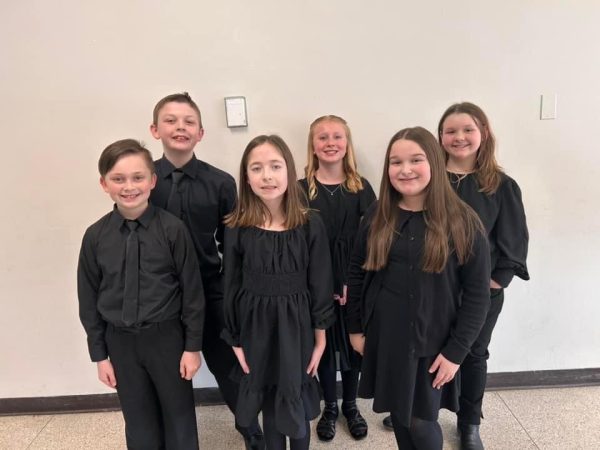A Year Unlike Any Other
WHS Students Adjusting to New Methods of Instruction
As we are now in our third month of school, many of us are surprised that we are still able to go to school while others are holding on to hope that we will be able to resume our normal way of life when 2021 comes.
The Johnny Green recently interviewed students in the hybrid-learning model, fully-virtual students, and teachers, to see how they feel the past two months have gone, and what their experience dealing with this uncharted way of learning and teaching has been like.
Two seniors who are in the hybrid-learning model: Jaya Patel and Allison Jeffers took some time to share their opinions on how things are going so far.
Q: How has the adjustment to hybrid learning been?
Allie: “The adjustment to hybrid has been fairly easy, most of the teachers have made a good effort to use the technology that helps to access the material.”
Jaya: “Awful, they give more work when we aren’t in school than when we are in school.”
Q: Do you feel that the school has done enough to protect students and staff from COVID?
Allie: “No, the desks don’t always appear to be six feet apart and they aren’t always cleaned between classes. Also, students are not always wearing their masks correctly or social distancing.”
Jaya: “No, I don’t think the school has really done enough. It seems like the desks aren’t always six feet apart and people aren’t wearing their masks correctly.”
Q: When do you predict that school will be “normal” again?
Allie: “I don’t think school will get completely back to “normal” again.”
Q: What have been some struggles you have encountered?
Allie: “The school has had a lot of problems with WiFi and the Chromebooks.”
Jaya: “Classroom sometimes doesn’t work and teachers give too much work.”
Q: What are some advantages of hybrid learning?
Allie: “You can talk to teachers face to face if you need help with specific problems.”
Jaya: “Getting to see teachers and friends some days and staying home on others.”
Q: Why did you choose to go hybrid?
Allie: “I wanted to be all virtual but my parents made me go hybrid.”
Jaya: “It’s my senior year.”
Q: Do you feel as if you will go fully virtual at some point in the year? If so, why?
Allie: “I hope I will go fully virtual, and I also feel the whole school will eventually have to go all virtual because cases will continue to rise in students.”
Jaya: “Yes, because there is going to be a second wave and many people might get it, and with the kids not always wearing masks properly, it’s going to spread because it’s an airborne virus!”
Q: How do you feel about the news that a student in the elementary school tested positive for COVID?
Allie: “When the student tested positive in the elementary I felt the school should have taken a longer break, including the high school, because many teachers go between both buildings and could have been exposed, and students in the elementary have siblings in the high school that could have also been exposed.”
Jaya: “I feel as if the school should be closed. Teachers go from school to school. It’s going to spread… People need to wear their masks properly, wash their hands and social distance and there shouldn’t be “masks breaks” it’s not a thing – Coronavirus doesn’t stop when we have a mask break.”
The Johnny Green also interviewed full-virtual student, Abby Minturn about how the transition has been for her and what is like to learn from home:
Q: Why did you choose to stay at home?
Abby: “I chose to stay home mainly because I like working mostly at my own pace and with working with my horses, makes my schedule a little simpler.”
Q: Do you plan on returning to school later in the year?
Abby: “I don’t believe I plan on attending school later on.”
Q: Do you feel as if you are getting the same education as those who are hybrid?
Abby: “I feel as though we are mostly getting the same, I know things have to be taught a little differently than those who are hybrid but I don’t feel left out or behind.”
Q: When do you predict that school will be “normal” again?
Abby: “I think by the beginning of 2021 things will start to return to normal.”
The Johnny Green also interviewed ELA teacher, Mrs.Weston, and math teacher, Mr. Corbin to see the teacher’s perspective on this school year:
Q: How has the adjustment to hybrid learning been?
Mrs. Weston: “I am learning so much and finding many resources that help supplement the curriculum in each of my courses. That said, it has been A LOT OF WORK! It has taken me a few weeks to find the groove and adjust my typical time management behaviors, but I think I’m at the point now where I feel comfortable with how things are working with both hybrid and all-remote classes.”
Mr. Corbin: “The adjustment to hybrid teaching has definitely been challenging, but overall not too difficult. It’s all about adapting, being flexible, and accepting change. I definitely prefer “normal” teaching over hybrid teaching, but I appreciate the new challenges that this forced change has brought upon me, and have learned a lot in the process.”
Q: Do you feel that the school has done enough to protect students and staff from COVID?
Mrs. Weston: “I feel safe here at school! We have hand sanitizer all over the place, even in the hallways now, and disinfectant spray for desks when needed. I see custodians working throughout the day to keep things clean- it smells like a pool around here sometimes!”
Mr. Corbin: “I personally feel very safe in school and I genuinely believe that the administration has put adequate protections in place for students and staff alike.”
Q: When do you predict that school will be “normal” again?
Mrs. Weston: “I have learned not to predict anything- last March I figured we’d be back to “normal” in a couple weeks, so… what do I know?”
Mr. Corbin: “I believe that next fall, schools will be “normal” again. However, to some degree, I’m not sure that school will ever be what it once was, and I wouldn’t be surprised if some students/families continue to push for virtual learning well into the future.”
Q: What have been some struggles you have encountered?
Mrs. Weston: “I find it challenging to have enough time to really “teach” students who are all-remote learners. Also, many students seem to view “A days” as days off from school which creates a lot of late work and unnecessary absences.”
Mr. Corbin: “I’ve struggled to really “connect” with my students as well as in the past. I’ve also been frustrated at times with how to effectively communicate with my students. I’m also struggling to effectively help my students who need the most support, as I’ve had much less one-on-one time to work with them. Those opportunities also provide time to get to know each other and to connect with each other better, which can be very beneficial for students who struggle with math. I’ve also found it difficult to find the best way to administer tests and quizzes. I get tired of being in front of a computer screen so much. I have a hard time staying on top of all the small details and problems that pop up. Multi-tasking is more important than ever, but is not one of my strengths. Time management is a challenge. Maintaining patience and sanity can be difficult, but overall I’m doing great!”
Q: What are some advantages?
Mrs. Weston: “It’s tough to think in terms of real advantages when everyone just wishes we could have a normal school year/life! For me, it might be that I am stretching out of my comfy teaching bubble into learning new ways of doing things… I suppose this sort of challenge is good for everyone once in a while.”
Mrs. Corbin: “Since I’m creating a video for every single lesson, I theoretically don’t need to worry about students missing important concepts due to absences, like in the past. That is of course, if they are willing to take the time and put in the effort to watch and try to learn the material independently. I also really like the fact that my students have everything that they could possibly need online. Every video lesson, note packet, assignment, worksheet, etc.”
Interviewing hybrid and all-remote students as well as teachers helps give us the full picture of what it’s like to be a senior and a teacher in Weedsport during a global pandemic. Looking at the answers, while some are similar for the most part everyone has a different view and has handled and adapted differently.
